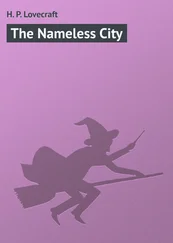Maurus Jokai - The Nameless Castle
Здесь есть возможность читать онлайн «Maurus Jokai - The Nameless Castle» весь текст электронной книги совершенно бесплатно (целиком полную версию без сокращений). В некоторых случаях можно слушать аудио, скачать через торрент в формате fb2 и присутствует краткое содержание. Город: New York, Год выпуска: 1898, Издательство: Doubleday, Page & Company, Жанр: Историческая проза, на английском языке. Описание произведения, (предисловие) а так же отзывы посетителей доступны на портале библиотеки ЛибКат.
- Название:The Nameless Castle
- Автор:
- Издательство:Doubleday, Page & Company
- Жанр:
- Год:1898
- Город:New York
- ISBN:нет данных
- Рейтинг книги:4 / 5. Голосов: 1
-
Избранное:Добавить в избранное
- Отзывы:
-
Ваша оценка:
- 80
- 1
- 2
- 3
- 4
- 5
The Nameless Castle: краткое содержание, описание и аннотация
Предлагаем к чтению аннотацию, описание, краткое содержание или предисловие (зависит от того, что написал сам автор книги «The Nameless Castle»). Если вы не нашли необходимую информацию о книге — напишите в комментариях, мы постараемся отыскать её.
The Nameless Castle — читать онлайн бесплатно полную книгу (весь текст) целиком
Ниже представлен текст книги, разбитый по страницам. Система сохранения места последней прочитанной страницы, позволяет с удобством читать онлайн бесплатно книгу «The Nameless Castle», без необходимости каждый раз заново искать на чём Вы остановились. Поставьте закладку, и сможете в любой момент перейти на страницу, на которой закончили чтение.
Интервал:
Закладка:
“Thank you, but I don’t care to drive to-day,” she said.
“Why not?”
“Riding out in a carriage does not benefit me.”
“When did you discover this?”
“Some time ago.”
Ludwig looked at her in astonishment. What was the meaning of this? Could she know that some one else had occupied her place in the carriage yesterday?
“And will you not go with me tomorrow?”
“If you will allow me, I shall stay at home.”
“Is anything the matter with you, Marie?”
“Nothing. I don’t like the jolting of the carriage.”
“Then I shall sell the horses.”
“It might be well to do so—if you don’t want them for your own use. I shall take my exercise in the garden.”
“And in the winter?”
“Then I will promenade in the court, and make snow images, as the farmers’ children do.”
And the end of the matter was that Ludwig sold the horses, and Marie’s outdoor exercises were restricted to the garden. Moreover, she studied and wrote all day long.
When she went into the garden, Josef, the gardener’s boy, was sent elsewhere so long as she chose to remain among the flowers.
One afternoon Josef had been sent, as usual, to perform some task in the park while Marie promenaded in the garden. He was busily engaged raking together the fallen leaves, when Marie suddenly appeared by his side, and said breathlessly:
“Please take this letter.”
The youth, who was speechless with astonishment and confusion at sight of the lady he had been forbidden to look at, slowly extended his hand to comply with her request when Count Vavel, who had swiftly approached, unseen by either the youth or Marie, with one hand seized the letter, and with the other sent Josef flying across the sward so rapidly that he fell head over heels into some shrubbery.
Then the count thrust the letter into his pocket, and without a word drew the young girl’s hand through his arm, and walked swiftly with her into the castle. The count conducted his charge into the library. He had not yet spoken a word. His face was startlingly pale with anger and terror.
When they two were alone within the four walls of the library, he said, fixing a reproachful glance on her:
“You were going to send a letter to some one?”
The young girl calmly returned his glance, but did not open her lips.
“To whom are you writing, Marie?”
Marie smiled sadly, and drooped her head.
Vavel then drew the letter from his pocket, and read the address:
“To our beautiful and kind-hearted neighbor.”
The count looked up in surprise.
“You are writing to Baroness Landsknechtsschild!” he exclaimed, not without some confusion.
“I did not know her name; that is why I addressed it so.”
Vavel turned the letter in his hands, and saw that the seal had been stamped with the crest which was familiar to all the world.
He hurriedly crushed it into bits, and, unfolding the letter, read:
“DEAR, BEAUTIFUL, AND GOOD LADY: I want you to love my Ludwig. Make him happy. He is a good man. I am nothing at all to him.
“MARIE.”
When he had read the touching epistle, he buried his face in his hands, and a bitter sob burst from his tortured heart.
Marie looked sorrowfully at his quivering frame, and sighed heavily.
“Oh, Marie! To think you should write this! Nothing at all to me!” murmured the young man, in a choking voice.
“’Nothing at all,’ ” in a low tone repeated Marie.
Vavel moved swiftly to her side, and, looking down upon her with his burning eyes still filled with tears, asked in an unsteady voice:
“What do you want, Marie? Tell me what you wish me to do.”
Marie softly took his hand in both her own, and said tremulously:
“I want you to give me a companion—a mother. I want some one to love,—a woman that I can love,—one who will love me and command me. I will be an obedient and dutiful daughter to such a woman. I will never grieve her, never disobey her. I am so very, very lonely!”
“And am not I, too, alone and lonely, Marie?” sadly responded Vavel.
“Yes, yes. I know that, Ludwig. It is your pale, melancholy face that oppresses me and makes me sad. Day after day I see the pale face which my cruel, curse-laden destiny has buried here with me. I know that you are unhappy, and that I am the cause of it.”
“For heaven’s sake, Marie! who has given you such fancies?”
“The long, weary nights! Oh, how much I have learned from the darkness! It was not merely caprice that prompted me to ask you once what death meant. Had you questioned me more fully then, I should have confessed something to you. That time, when you rescued me from death, you gave my name to Sophie Botta, who also took upon herself my fate. I don’t know what became of her. If she died in my stead, may God comfort her! If she still lives, may God bless and help her to reign in my stead! But give me the name of Sophie Botta; give me the clothes of a working-girl; give me God’s free world, which she enjoyed. Let me become Sophie Botta in reality, and let me wash clothes with the washerwomen at the brook. If Sophie and I exchanged lives, let the exchange become real. Let me learn what it is to live, or—let me learn what it is to die.”
In speechless astonishment Count Vavel had listened to this passionate outburst. It was the first time he had ever heard the gentle girl speak so excitedly.
“Madame,” he said with peculiar intonation, when she had ceased speaking, “I am now convinced that I am the guardian of the most precious treasure on this terrestrial ball. Henceforward I shall watch over you with redoubled care.”
“That will be unnecessary,” proudly returned the young girl. “If you wish to feel certain that I will patiently continue to abide in this Nameless Castle, then make a home here for me—bring some happiness into these rooms. If I see that you are happy I shall be content.”
“Marie, Marie, the day of my perfect happiness only awaits the dawn of your own! And that yours will come I firmly believe. But don’t look for it here, Marie. Don’t ask for impossibilities. Marie, were my own mother, whom I worshiped, still living, I could not bring her within these walls to learn our secret.”
“The woman who loves will not betray a secret.”
For an instant Ludwig did not reply; then he said:
“And if it were true that some one loves me as you fancy, could I ask her to bury herself here—here where there is no intercourse with the outside world? No, no, Marie; we cannot expect any one else to become an occupant of this tomb—the gates of which will not open until the trump of deliverance sounds.”
“And will it be long before that trump sounds, Ludwig?”
“I believe—nay, I know it must come very soon. The signs of the times are not deceptive. Our resurrection may be nearer than we imagine; and until then, Marie, let us endure with patience.”
Marie pressed her guardian’s hand, and drew a long sigh.
“Yes; we will endure—and wait,” she repeated. “And now, give me back my letter.”
“Why do you want it, Marie?”
“I shall keep it, and sometime send it to the proper address—when the angel of deliverance sounds his trump.”
“May God hasten his coming!” fervently appended the count.
But he did not give her the letter.
Count Vavel now rarely ventured beyond the gate of the Nameless Castle. The weather had become stormy, and a severe frost had robbed the garden of its beauties. The very elements seemed to have combined against the dwellers in the castle. Even the lake suddenly began to extend its limits, overflowing its banks, and inundating meadows and gardens. Marie’s little pleasure-garden suffered with the rest of the flooded lands, and threatened to become an unsightly swamp.
Читать дальшеИнтервал:
Закладка:
Похожие книги на «The Nameless Castle»
Представляем Вашему вниманию похожие книги на «The Nameless Castle» списком для выбора. Мы отобрали схожую по названию и смыслу литературу в надежде предоставить читателям больше вариантов отыскать новые, интересные, ещё непрочитанные произведения.
Обсуждение, отзывы о книге «The Nameless Castle» и просто собственные мнения читателей. Оставьте ваши комментарии, напишите, что Вы думаете о произведении, его смысле или главных героях. Укажите что конкретно понравилось, а что нет, и почему Вы так считаете.












